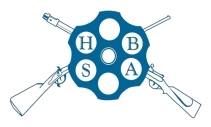Mission Statement for the Junior Section of the HBSA There is, perhaps, no better way to describe the aspirations of the HBSA Junior Section than to quote Lord Reith, the BBC’s first Director General’s original guidelines for that organisation, which was to inform, educate and entertain. In our terms that would translate into informing our Junior Members of the historical and heritage aspect of breech-loading firearms, educating them through our publications and lectures, and entertaining them through the responsible use of the shooting of our historic arms. It is not the intention of the HBSA that the Junior Section will be open to “all-comers”, as membership can only be drawn from the families of existing members of the Association, our purpose being to pass on, educate and encourage the continuity of serious interest in historic arms for the younger generation. HBSA Junior Section Mandate (Amended 9th June 2021)
|
Home >
About the HBSA >
